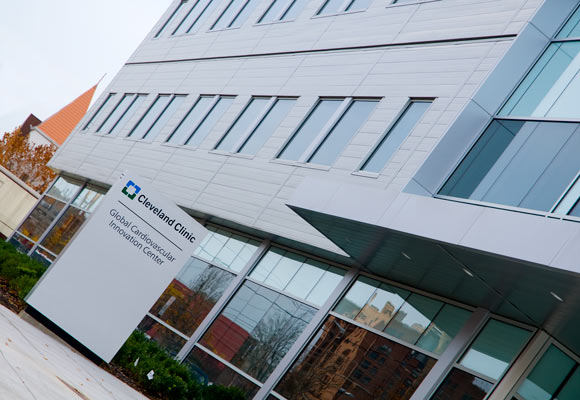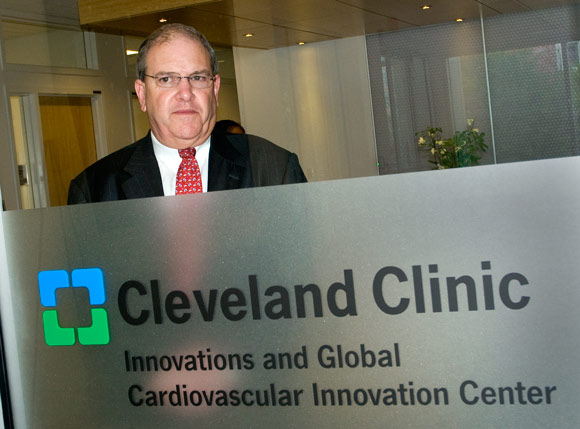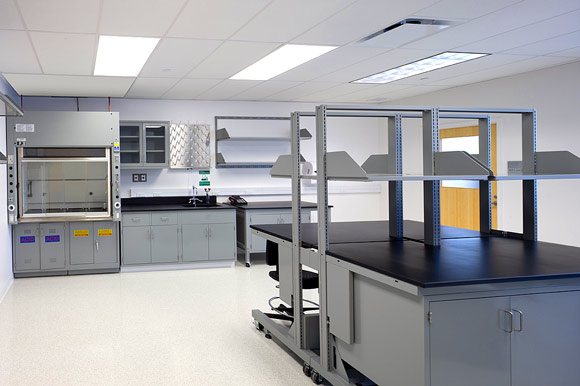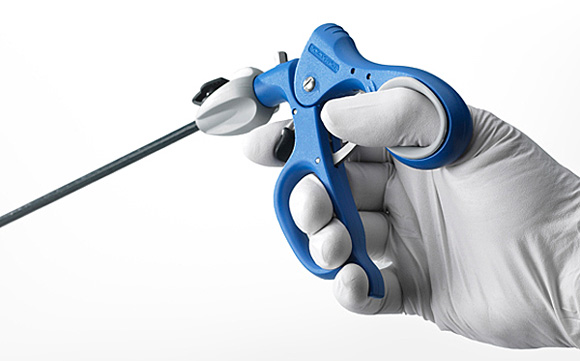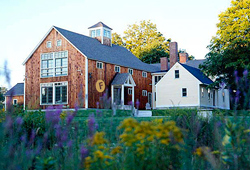clinic's cardiovascular incubator adds top product developer to its growing crop of high-tech firms
Despite the bucolic moniker, Farm Design has nothing to do with cows, corn, or canola. The New Hampshire-based medical product development company happens to be headquartered in a restored 18th century farmhouse (actually two of them) hence the name.
What Farm Design does do is transform medical innovations into thriving commercial realities, which is why they wanted a presence in Cleveland -- and why Cleveland Clinic's Global Cardiovascular Innovation Center wanted them here. Farm specializes in the development of cardiovascular, orthopedic and handheld instruments, and the organization's reputation in R&D made it a "must have" for the Clinic's new medical firm incubator.
Thanks to a $60 million grant from Ohio's Third Frontier program and another $190 million from the Cleveland Clinic, GCIC formed last April to help create, attract, expand and retain companies that diagnose or treat cardiovascular disease. The secondary purpose, of course, is to create jobs and spur economic development in the region. The cardiovascular medicine market, the largest in healthcare, is estimated at more than $420 billion.
"To date, we have awarded 45 grants totaling about $14 million," explains Tom Sudow, GCIC's director of business development. Under the program thus far, 28 companies have either been formed or supported, nine of which originated out of state, like Farm Design.
Housed in a $20 million, 50,000-square-foot building that was paid for by state and Clinic grants, incubator tenants pay rents at or below the market rate. But it's not the deal on rent that attracts these companies -- it's the strength of Ohio's cardiovascular market.
"When you look at Cleveland, specifically for medical device development, it's extremely deep, extremely focused, and just a great opportunity for us," explains Farm's Marc Dubreuil, adding that the outpost is the company's first foray out of state. "In our neck of the woods, in Boston, the universities don't have this type of collaborative effort with the state, and most of the funding for startup companies comes from venture capital."
On the edge of the Cleveland Clinic's main campus, the GCIC incubator is close to Case Western Reserve University and University Hospitals, providing tenants with unrivaled access to researchers, physicians, and labs.
"We are within walking distance of nearly 180 cardiologists, 1,300 to 1,400 researchers. There is no other place in the world we know of that has this kind of concentration," boasts Sudow. "A lot of companies out there want to be around Ohio's doctors and researchers."
GCIC is comprised of members from Ohio's leading institutions: Cleveland Clinic, University Hospitals, Case Western Reserve University, Ohio State University, and the Universities of Cincinnati and Toledo. Its economic development partners are Team NEO, BioOhio Inc., the Fairfax Renaissance Development Corp., and BioEnterprise Corp. The organization has eight full-time employees and two shared positions.
"We have people who travel around the world looking for opportunity, and we have people who travel around the state looking for opportunity," says Sudow. "We work with everyone, not just out of town or out-of-state startups."
Other companies successfully recruited by GCIC are NI Medical from Israel, Proxy Biomedical of Ireland, and Aim Pharmaceutical out of New York. These three companies are expected to create about 40 new jobs here over the next three years. Presently, 10 companies occupy about 60 percent of the building, with occupancy expected to hit 70 percent by the end of the year.
"We identified some areas within the supply chain of biomedical companies where Ohio did not have adequate solutions," says Sudow. "Then, we identified companies that provide those [solutions] and set about bringing them to Cleveland."
Farm is one of those companies. For now several executives make the bi-weekly commute from New Hampshire to Cleveland, working to get the operation up and running. The company expects to have 10 to 12 permanent employees here in a year or two.
Farm's Dubreuil sees both good and bad signs for the future of medical innovation. "As the innovation gets more and more sophisticated, as we're doing crazier and crazier things, like passing a heart valve through a catheter, It puts a greater demand on product design for safety, efficacy, and usability," all good news, he says.
On the flipside, though, is the notion that healthcare reform may make it more difficult to bring medical devices to market. "Investors may be less inclined to spend money on projects that will require more time, money and energy to get through the FDA," Dubreuil wonders.
GCIC's Sudow, however, remains bullish. "The fact that Farm Design, one of the most respected contract design firms, chose to open their first office outside the Boston area here in Cleveland is major praise for what's happening in this area."
- Tom Sudow, GCIC's director of business development - Photo Bob Perkoski
- Farm Facility in Hollis, New Hampshire - Photo courtesy of Farm
- Universal handle developed by Farm for Cardinal Health's laparoscopic instruments - Photo courtesy of Farm

